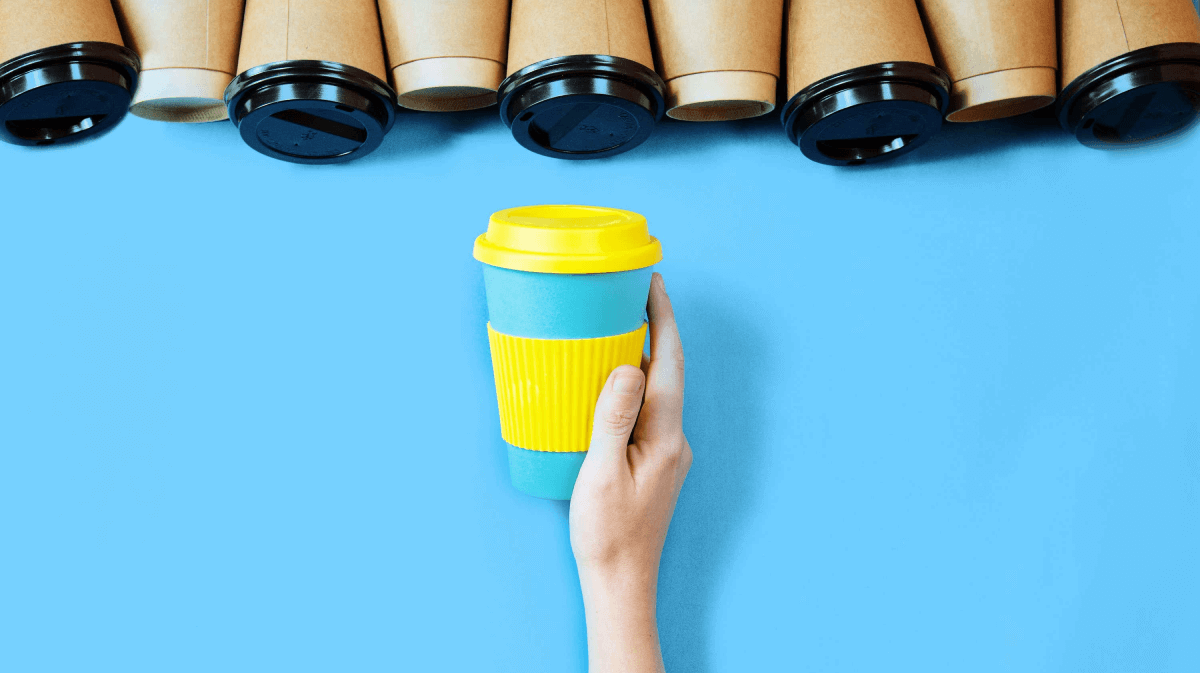The Australian Capital Territory banned single-use plastic bags in 2011, followed by Tasmania in 2013, Queensland in 2018, and Western Australia, the Northern Territory and Victoria in 2019. Most recently, New South Wales has joined the party, banning single-use plastic bags only this year.
Single-use plastic straws, stirrers and cutlery, including knives, spoons, forks, chopsticks and food picks will also be banned from 1 November 2022.
As with the bags, the ban will include such items made from biodegradable, compostable, or bio-plastic materials. Wooden items are not included.
The ban does not apply to serving utensils such as salad servers or tongs, nor to items that are part of the packaging, such as a straw on a juice box, or a plastic film lid on a bowl.
These actions will help to prevent problematic plastic items from being dumped in landfill and hopefully encourage people to recycle more.
Even the smallest piece of plastic, used just once and then casually tossed away, can remain in our environment as waste for hundreds of years – polluting the soil, tainting oceans and harming wildlife.
Everyone has a role to play in tackling plastic pollution. Thankfully, sustainable changes have now become ingrained in many people’s day-to-day routines, such as taking a reusable bag with them when they go shopping; carrying a reusable coffee cup and making purchases based on the amount – or lack of – plastic packaging.
Read: Seven ways to tackle plastic waste
Jessica Hickie, program manager for the Environment Agency’s plastics and sustainability team, adds: “Around 12 million tonnes of plastic enters the environment each year – that is a truck load every minute.
“Small actions will add up, so I’d urge you to look for one simple change you can make that will reduce your reliance on avoidable plastic. If we are all kinder to our planet, we can help protect the environment from further harm caused by plastic pollution and leave it in a better place for future generations.”

It may feel like an enormous issue to tackle, but we can all start small. Here, Ms Hickie shares some ways to reduce your plastic use. Pick one, or a few, and go from there.
At home
1. Baking your own bread can cut down on your use of soft plastics. Bread bags and other soft plastics such as chip packets don’t often get collected by local authorities – but some supermarkets are now starting to offer this service.
2. Wet wipes contribute to sewer blockages and end up polluting our beaches and riverbeds – switch to using a cotton flannel that can be hygienically washed and reused. Even if a wipe says it is flushable, it is better for our marine environment if you place it in the bin instead.
3. Swap the endless plastic bottles in your bathroom for shampoo and conditioner soap bars, which are eco-friendly and plastic free – or look at refill options at your local zero waste shop.
4. If you have a floor mop that uses single use wipes, switch to one with reusable cotton pads.
View this post on Instagram
5. When it’s time to replace your toothbrush, try switching to one made from bamboo (electric ones are available now too).
6. Ditch single use plastic razors for a reusable one. Some brands are offering a subscription (and recycling) service that can be delivered to your door.
Outside the home
7. Keep a set of reusable cutlery in your bag (another use for those takeaway cartons!) or your work desk so you do not have to use disposable ones.
8. Most of the chewing gum made today is made using gum base, which includes a mixture of polymers, plasticisers and resins, and mixed together with food-grade softeners, preservatives, sweeteners, colours and flavourings. Switch to plastic free chewing gum and always dispose in a waste bin.
9. Avoid using plastic condiment sachets – if you have room in your bag, consider bringing your own condiments in small, reusable, glass jars or plastic containers.
10. If you are eating in a work canteen, either opt for a plate or bring your own reusable food containers for canteen staff to place your food in. This can help eliminate the use of polystyrene takeaway boxes, which are not commonly recycled and are harmful to the environment.
Read: Microplastics found in human blood for first time
View this post on Instagram
Festivities
11. Give experience gifts rather than physical gifts.
12. If you want to bring some sparkle to your festivities, use energy efficient fairly lights, and reusable tealights in pretty jam jars, rather than glitter, which can be a harmful microplastic that ends up polluting our oceans.
13. Avoid using plastic balloons and balloon sticks – instead make your own decorations such as bunting and paper chains from recyclable materials, or buy durable ones you will be able to reuse and store them away carefully for next time.
Read: Seven ways to reuse plastic bags
And finally
14. Start a conversation with a friend or family member about plastic pollution. Borrow items from friends, neighbours, family and local community groups. Find out if your local area has a ‘repairs cafe’ so you can make do and mend items.
What do you do to avoid single-use plastics? Do you have any other tips or tricks to share in the comments section below?
– With PA

